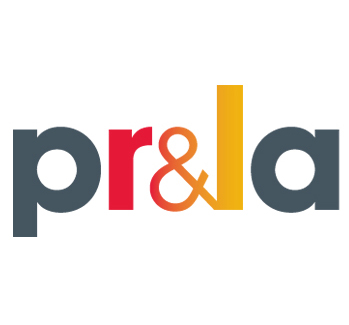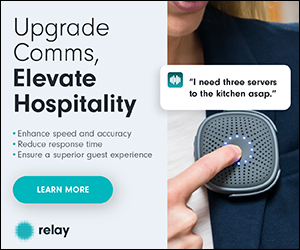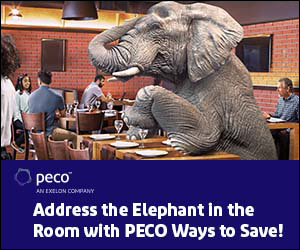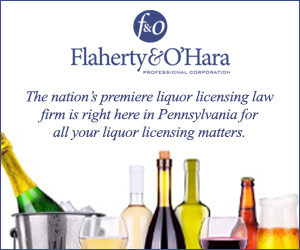State Items
A federal judge in Western Pennsylvania ruled that aspects of the Wolf Administration’s COVID-19 mitigation strategies were unconstitutional, specifically the business shutdown order and the limits on gathering sizes. The Third Circuit issued a stay, meaning that the Administration could continue to enforce the 25/250 restrictions while it reviewed the appeal.
Ultimately, the outcome of the ruling is a moot point since the state issued updated guidance on event gathering limits. Rather than set limits, the new guidance is a formula based on venue occupancy. Again, the order complicates matters and creates winners and losers, with more losers than winners—particularly for smaller venues like restaurants.
The Administration updated the restaurant industry guidelines at the end of September, allowing restaurants to return to 50% occupancy as long as the restaurant self-certifies. The guidelines still prohibit bar seating, require a meal with the purchase of alcohol, and bans dine-in consumption of alcohol past 11pm.
PRLA advocated for HB 2513, which would allow restaurants and private events to return to 50% occupancy (without having to certify), reinstate bar seating, and eliminate the meal requirement. HB 2513 was passed with broad bi-partisan support in both the Senate and the House. However, Gov. Wolf vetoed the bill on October 16. The House attempted an override vote on October 20 which failed by a mere two votes. This stops any efforts to pass the bill or something similar until after the election.
A few days later in a highly publicized press conference, the Wolf Administration announced that it would be waiving licensee renewal fees. The $20 million ‘lifeline’ actually amounts to about a $1,500 savings for licensees. At the PLCB’s October meeting, the board voted to waive renewal fees for 2021. The details on which fees will be waived, how safekeeping will be handled, and other details are outlined in the PLCB’s Updated Advisory Notice No. 27.
The House and Senate are in recess until after the election. While they are scheduled to return November 10, the scope of the legislative agenda will be based off of how well Republicans fare in the election.
There is still over $1 billion in unspent cares act funds which will need to be allocated by Dec. 30 of this year—at minimum, the legislature will need to determine where those funds go when they return in November. PRLA continues to work with the House & Senate to develop a grant program for the entirety of the hospitality industry.
The Senate Law & Justice Committee moved two pieces of legislation in early October that PRLA supports:
- HB 763 (O’Neal—R, Washington): Permits clubs to sell up to 192 ounces of malt and brewed beverages for off-premise consumption.
- HB 1617 (Staats—R, Bucks): Allows holders of a Hotel (H) license that was in existence before 1949 and no longer maintain rooms to convert the license to a Restaurant (R) license for $30,000.
While both bills saw movement on the Senate floor, they did not pass finally before the legislature broke for elections.
The 2019/2020 Legislative Session is rapidly coming to a close. The next issue of our magazine will cover the good, bad, and ugly of this session, as well as analyze the results of the Nov. 3 election.
Federal Items
In early October, President Trump called off negotiations between the Administration and House Democrats on the next stimulus bill until after the election. This announcement was a surprise to both parties, as neither wanted to walk away first despite the negotiations having stalled. Talks have resumed between House Democrats and the Administration, but it’s unlikely that an agreement will be reached before the election takes place.
The U.S. Senate confirmed Amy Coney Barrett to the U.S. Supreme Court and then adjourned for recess. The Senate is not expected to return to session until after the election, meaning no relief package will be passed before the election.
The Small Business Administration (SBA) announced that businesses who received Paycheck Protection Program (PPP) loans under $50,000 can now access a new forgiveness application designed to simplify the forgiveness and loan review process. This “streamlined” PPP forgiveness form does not require businesses to show the calculations used to determine their loan forgiveness amount. However, SBA may request information and documents to review those calculations as part of its loan review process. The forgiveness for PPP loans under $50,000 is not “automatic PPP loan forgiveness,” as borrowers are still required to submit documentation to lenders on payroll costs, rent/lease payments, and utilities.
The U.S. Supreme Court refused to hear a challenge to the Wolf Administration’s order that closed all non-life-sustaining businesses. This is a different case than the one on gathering limits.
The CDC released a study on a linkage between COVID-19 and restaurants. The National Restaurant Association issued a statement refuting the findings. Despite the NRA’s response, and the study’s authors suggesting further analysis, many officials have latched onto the CDC’s study as justification for imposing strict mitigation tactics on the restaurant industry.
With 1-in-4 Americans collecting unemployment this year, the IRS is reminding anyone who received unemployment compensation this year that it is considered taxable income. If any of your staff collected UC throughout the pandemic (even temporarily), please make sure they understand that it’s taxable.
Local Items
Philadelphia
Philadelphia announced its private event guidance, which is slightly different than the state’s guidance. Indoor events are restricted to 10 percent of capacity, up to 250 people maximum no matter the size of the venue. This will be more restrictive than 25 people for a lot of restaurants. Outdoor events align with the state’s guidance.
To help restaurant operators in the City extend outdoor dining as long as possible, City Council voted legislation out of committee to extend the outdoor seating expansion through Dec. 31, 2021. City officials also recently released the Winterization Guidelines, which review the dos and don’ts of outdoor dining this winter.
The Philadelphia Parking Authority is providing discounted parking to restaurant patrons as part of its Park. Eat. Love. campaign, which runs from now through Nov. 30. Restaurant patrons can park in one of the 6 PPA garages after 5 pm for up to 4 hours at a flat rate of $7.
Philadelphia COVID-19 Pandemic Paid Sick Leave is in effect through December 31, 2020. Employers with 500 more employees are required to provide public health emergency paid sick leave for certain reasons connected to COVID-19. Employees not covered by FFCRA may be eligible for up to 112 hours of public health emergency paid sick leave under certain circumstances.
Philadelphia City Council has introduced legislation that would put restrictions on the hotel and large event industry that dictate how laid off employees need to be hired back during the pandemic. Further, legislation was also introduced that would require all employees to stay on at a hotel if the hotel is sold.
Further, City Council is looking at legislation to expand rent protections for the restaurants industry during the pandemic.
Allegheny County
County officials rescinded their local orders and brought their mitigation strategies inline with the state’s guidelines.
Paid sick leave legislation is being discussed by County Council.
What’s next?
As COVID case counts increase in Europe and the U.S., PRLA continues to carefully watch and advocate against mitigation measures that target the hospitality industry without any basis in facts or science.












